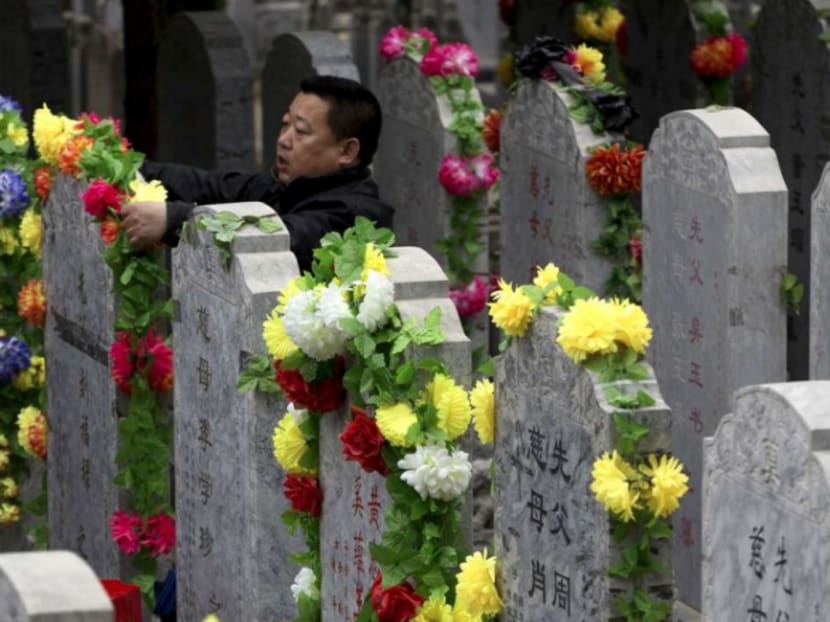Chinese city bars non-locals from buying grave sites
SUZHOU — While residents of China’s big cities have grown accustomed to various restrictions on buying homes, they might be surprised to learn that with soaring land prices, the purchase of grave sites have also come under strict scrutiny.

Suzhou has become the first city in China to ban people without local household registration from buying local grave sites. Photo: AP
SUZHOU — While residents of China’s big cities have grown accustomed to various restrictions on buying homes, they might be surprised to learn that with soaring land prices, the purchase of grave sites have also come under strict scrutiny.
Suzhou, in Jiangsu province, has become the country’s first city to ban people without local household registration from buying local grave sites, the Suzhou Daily reported.
Household registration, or hukou, has long been a prerequisite under the restriction policies on home purchase in major metropolises like Beijing and Shanghai.
Hukou limits access to social benefits largely to the birthplace of the holder. In Beijing for example, residents without a Beijing hukou are only allowed to buy one home, and only after paying tax for 60 consecutive months.
But the new rule in Suzhou passed in early March extended the policies to graves, prompting residents to complain online that while before they could not afford to buy a flat while they were alive, now they can’t buy a grave when they die.
The rule also bans people from buying graves for those who are still alive, except for surviving husbands or wives who are to be buried with their deceased spouses or patients who have been deemed to be terminally ill by a hospital.
It also limits the size of new graves to be built in the city. A single grave should be no larger than 0.7 square metres, while a grave for two people should be under 1 square metre, according to the rule.
After decades of one-child policy, which was finally scrapped at the start of 2016, China’s population is ageing faster than almost anywhere else in the world. The World Bank estimates that almost 10 per cent of China’s population is aged over 65, while the United Nations expects that figure to soar past 25 per cent by 2050.
Facing such a rapidly ageing society, the government is struggling to cope with the associated problems ranging retirement pensions to health care and now even burial sites.
Suzhou, which has one the hottest property markets in China, has also been attracting a large proportion of grave buyers from outside the city.
A grave agent in Suzhou told the National Business Daily that 60 per cent of his clients came from nearby Shanghai, while another 20 per cent came from neighbouring Zhejiang province.
There are 30 commercial cemeteries in the city, providing 420,000 graves. In 2011, local media reported that with the annual death toll of 42,000, the graves would be sold out in 20 years.
But after factoring in purchases from outside Suzhou, the local government said in 2015 that the city’s supply of graves was expected to run out in 5 years. SOUTH CHINA MORNING POST





